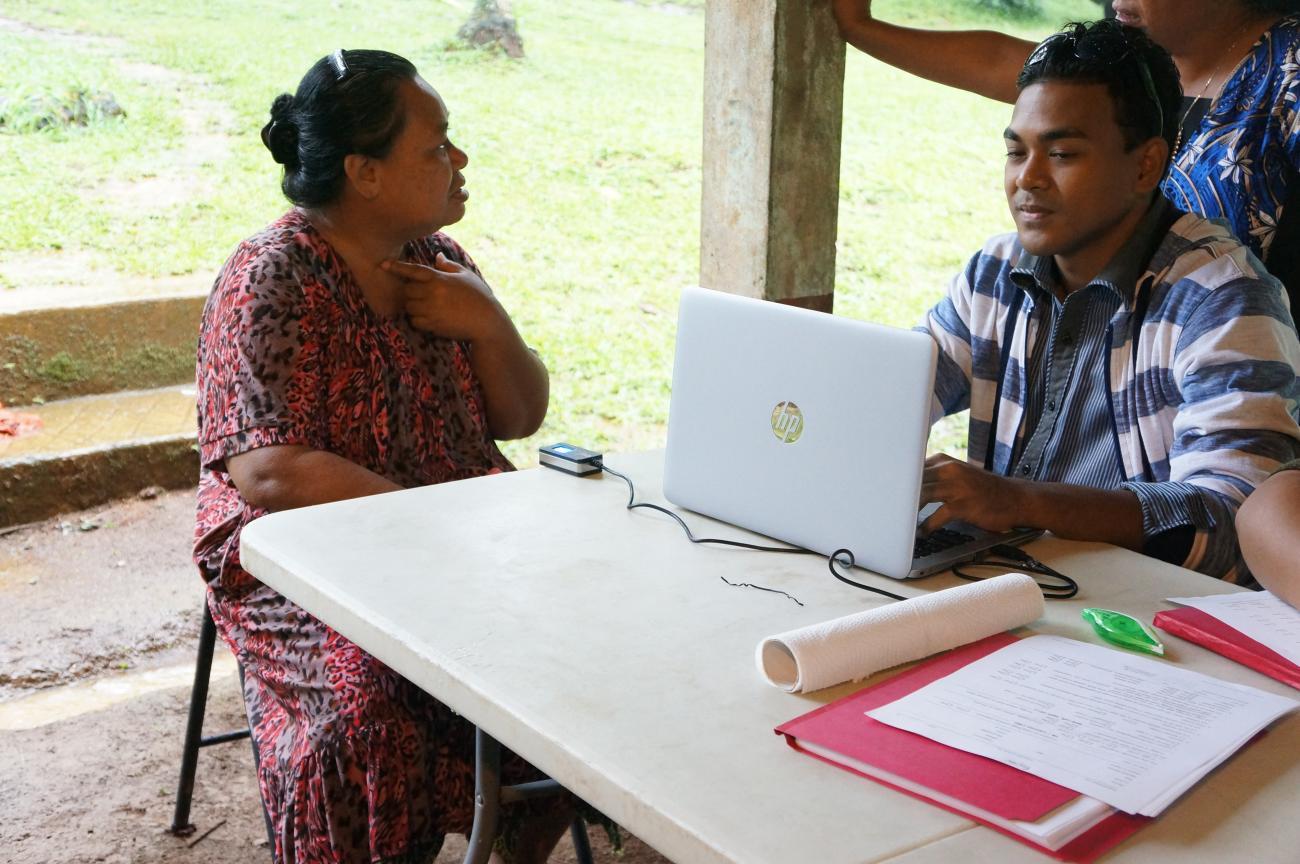A primary health care approach is helping ensure that Micronesia's 100,000 people – scattered across hundreds of islands in the Pacific Ocean – are able to receive a comprehensive package of care.
Transport between the islands is expensive, and people and communities are getting infrequent and fragmented health care.
The population can access a comprehensive package of care at primary level, including for NCDs, at affordable costs.
Improved access to services are a result of strong collaboration between local governments, communities, development partners and WHO, a robust situation analysis, a set of guidelines and a capacity building programme.
The new Dispensary Strengthening Programme is a major improvement allowing us to provide various services from different public health programmes, all at the same time. It also allows us to detect illnesses that otherwise might be missed.
We are finding illnesses that were not being detected before this programme.
The Dispensary Strengthening Programme
This Government programme extends services to more than 100 000 people scattered across hundreds of islands covering 2.6 million square kilometres of the Pacific Ocean. Today, villagers are happy to receive health care at outreach clinics in their own village.
Revitalizing existing centres
Previously, more than 90 dispensaries were set up in the Federated States of Micronesia to serve as primary health care centres. Health workers would dispense medications and other medical supplies and were trained to offer services in health promotion, disease prevention and basic treatment.
However, due to financial constraints, limited supervision and a lack of resources for travel, the dispensary system was unable to deliver adequate services to people in remote areas. Often, health workers could do little more than give out medicines to people in the immediate area.

The Dispensary Strengthening Programme began as the Government recognized the inadequacy of this set up, especially with the increasing burden of noncommunicable diseases such as hypertension and diabetes.
The Dispensary Strengthening Programme brings health workers to remote communities to provide comprehensive outreach services to tackle a variety of health needs. It was launched in June 2017 as a demonstration project in Mdolenihm Municipality, Pohnpei State as part of the country’s efforts to advance UHC.
The Department of Health Services of Pohnpei State leads the programme with support from the national government, the World Health Organization (WHO), the International Organization for Migration, the Japan International Cooperation Agency and the Island Food Community of Pohnpei.
Improving coordination for people-centred care
Health workers travel to communities to provide care that includes: screening for NCDs, TB, leprosy and cervical cancer; health education; basic treatment; and dispensing of medications.
The programme also collects biometric data, which is shared with drug dispensary and hospital information systems, to support care continuity and follow-up.
"The demonstration programme shows great potential. First, they’ve taken outreach programmes for non-communicable diseases, maternal and child health, HIV, and TB – which were accustomed to working in isolation – and brought them together as one multidisciplinary team that travels together to provide comprehensive services," says Dr Eunyoung Ko, WHO Country Liaison Officer in the Federated States of Micronesia, who led a situation analysis and supported the development of guidelines for integrated outreach services.
Engaging communities in programme design
Community engagement has been key to the early success of the demonstration programme. The Government health team consulted community leaders, including the paramount chief and village chiefs, to identify priorities and expectations.
"The discussions we had with health officials before this programme was launched were very important and the activities you are seeing today are based on the planning that we took part in. This is our second outreach visit, and I think we are finding hidden illnesses that weren’t being detected before this programme,” said Mathias Pelep, the 91-year-old village leader of Wapar.
Going forward, WHO will continue to work closely with the Government in monitoring the programme and in conducting a cost analysis to support its expansion to other municipalities.
